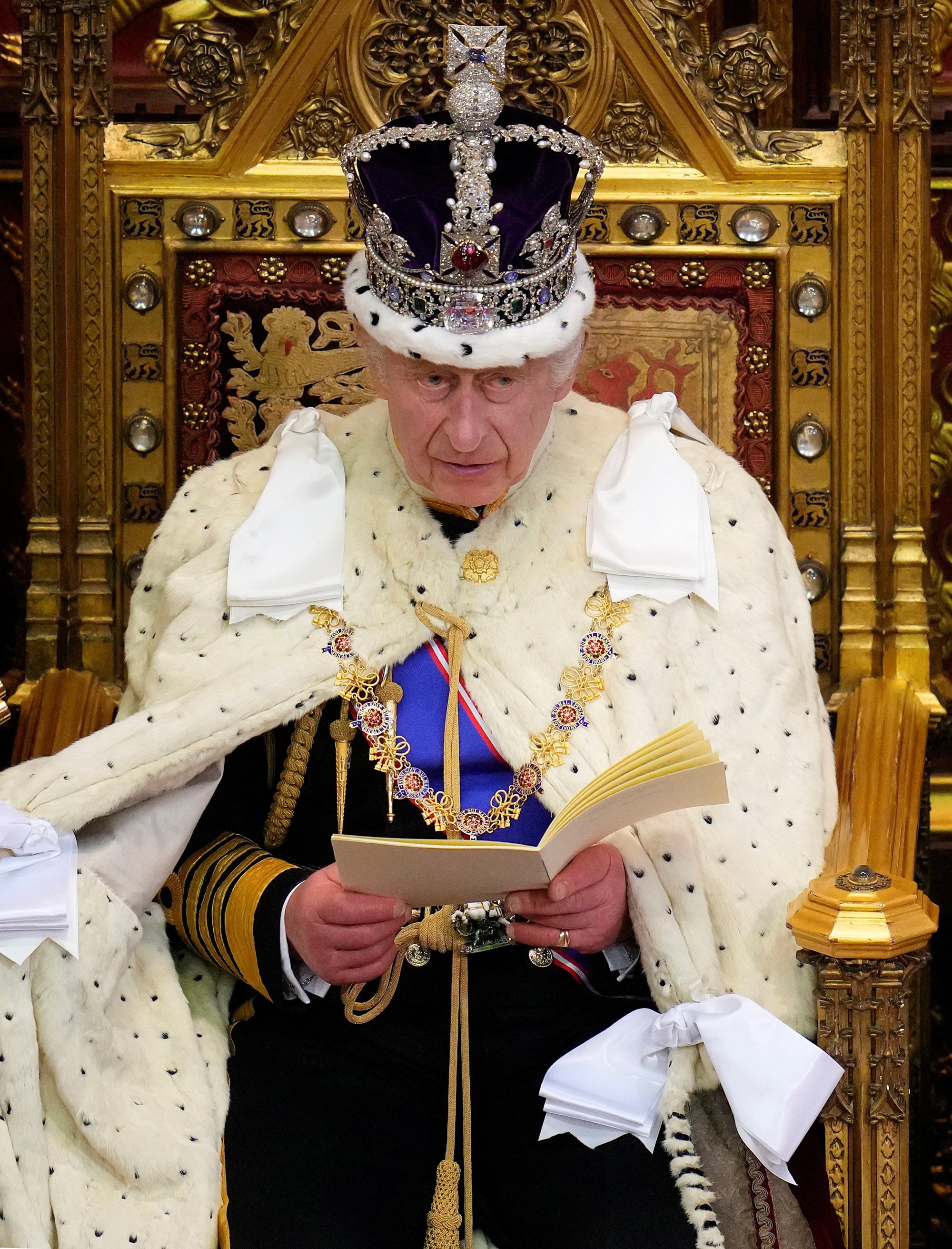What does King Charles actually do as Britain’s head of state? Queen Camilla and Prince William can stand in for him as he battles cancer, from Buckingham Palace meetings to giving the King’s Speech


Under Britain’s constitutional monarchy, the king is head of state but must remain politically neutral and leave policymaking to the elected Parliament. He is obliged to follow the government’s advice and not act on his own opinions.
But even in his largely ceremonial job, Charles performs a number of duties integral to the running of the UK.
What are King Charles’ duties as Britain’s head of state?

His most visible role is at the annual State Opening of Parliament, where the monarch sets out the government’s agenda in a formal address. The speech is written by the government and contains a summary of the legislation proposed for the forthcoming parliamentary session.
Charles, 75, first delivered the King’s Speech in November, although he delivered the last Queen’s Speech of his mother’s reign on her behalf in 2022 when she dropped out due to health issues.
The monarch also gives royal assent to bills passed by Parliament, meaning that all legislation must receive his sign-off to become law. He or she plays a similar part in appointing new prime ministers and Cabinet members.

The sovereign dissolves Parliament before a general election and invites the leader of the party that won to become prime minister and to form a government.
Two days before her death on September 8, 2022, Charles’ mother, Queen Elizabeth, appointed Liz Truss to what turned out to be only a six-week term as prime minister.
The monarch also holds a weekly private audience with the prime minister and can express political opinions during it, but what is said must remain behind closed doors. The meetings, which usually take place on Wednesdays at Buckingham Palace, are expected to continue during Charles’ outpatient cancer treatment, although they may take place remotely.

The palace has said the king will also continue receiving stacks of important government documents, which are traditionally delivered daily in a red leather box, and chairing monthly meetings of the Privy Council.
The council, which served as the original executive arm of the government in England, today advises the king on giving his formal approval of orders that were vetted by government officials, including on matters such as issuing coins and setting up new government departments.
Who can step in for King Charles if he can’t perform duties due to illness?

Palace officials say that while the king plans to continue with state business and official paperwork during his treatment, he is stepping back from the hundreds of public engagements he carries out each year.

Another of the monarch’s visible duties as head of state is hosting world leaders during their visits to the UK. Beyond that, the king is expected to serve as a symbol of national identity, unity and continuity. Every year, the monarch leads Remembrance Day ceremonies to honour members of the armed forces who were killed while fighting for the country.

For many British families, watching the king’s annual Christmas Day address on TV is a holiday tradition.
Charles is also head of the Commonwealth, a loose association of 56 countries, most of them former British colonies or once under British rule. That role, too, is mostly ceremonial.

- Palace officials say that while King Charles plans to continue with state business and official paperwork during his cancer treatment, he’s stepping back from public engagements
- Queen Camilla and Prince William can stand in for Charles, like he did for Queen Elizabeth – and while Harry isn’t expected to take up royal duties, he did fly to London from California to see his dad